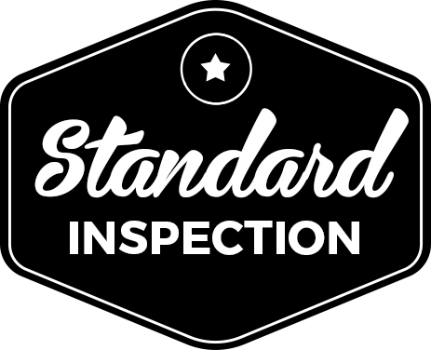
Sellers - Prepare Your Home For Inspection
1) Clean The House
Homeowners often overlook this simple task. Many home inspectors carry a preconceived notion of how well a home has been maintained, based on the first impression. A clean house says that you take pride in the care of the house.
2) Be On Time
Sometimes, home inspectors are early. If your appointment is for 9:00 a.m., have the house ready for inspection at 8:30. It's common for inspectors to start on the exterior of the home, so don’t be surprised if you see someone snooping around in your yard.
3) Leave Utilities Connected
The home inspector will need to turn on the stove, dishwasher and air conditioner, and test the furnace, so leave the utilities on--especially if the house is vacant. It's impossible to check receptacles for grounding and reverse polarity if the power is turned off. If you have no power, the inspector will need to reschedule, which could delay the closing of your transaction and the removal of the buyer's Home Inspection Contingency. Home inspectors will often charge the buyer a reinspection fee to make a return trip.
4) Provide Work Space Around Furnace and Water Heaters
Remove boxes, bins, furniture and anything else blocking access to your furnace, air conditioner or water heater. The inspector will need three to four feet of working space to inspect these items.
5) Keep Pilot Lights Lit
Many home inspectors will refuse to light pilot lights because he/she does not carry enough insurance to be covered for that type of liability. If your pilot lights are not lit, then important items such as the water heater, gas stove or furnace will not be inspected and the buyer could delay closing until those inspections are completed. Again, the inspector will probably charge the buyer extra to make a return trip.
6) Provide Access to Attic and Garage
The inspector will need to get into your basement and/or attic as well, so keep a path cleared. Move all boxes and stored items away from the walls by at least two feet. Vacuum spider webs. Look in the attic for possible rodent droppings. Secure valuables, if any.
7) Leave Keys for Outbuildings and Electrical Boxes
Leave labeled keys for access to any exterior buildings. Also, be sure to leave the remote controls for your garage door opener, or a key if the garage is unattached to the house. Unlock the covers for your sprinkler system and electrical box.
8) Clear Away Snow/Brush From Exterior Inspection Points
In winter, make sure to provide a path around the house in the case of snow. During the remainder of the year, cut away any dead tree branches and remove brush from around the foundation. Move trash cans away from the house.
9) Provide Repair Documents
Provide your home inspector with all invoices and documents for any repairs, remodeling projects, or new items (such as a roof or furnace). If you've upgraded the electrical from ungrounded to grounded, installed a new dishwasher, or repaired a leaky faucet, find the paperwork. It will give the buyer peace of mind to know those items were reinspected.
10) Prepare to Be Away for Three Hours Minimum
Often the buyer will accompany the home inspector, and may feel uncomfortable asking questions with owner is present. Try to schedule the inspection for a time when you (and your children) can be away from the house. Make sure to crate your pets if you cannot take them with you. Inspections can take up to 3 hours to complete, so plan accordingly.
